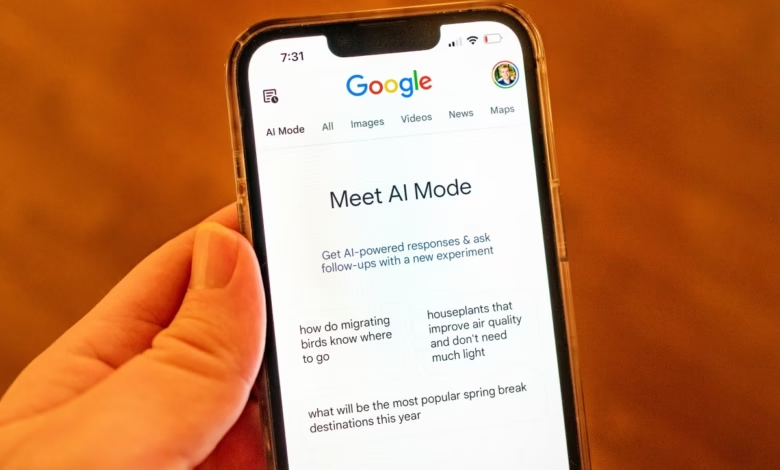Google’s AI Search Slashes Publisher Traffic

▼ Summary
– Google’s AI tools, like AI Overviews and chatbots, are reducing traffic to news publishers by providing answers directly without requiring clicks on external links.
– AI Overviews, launched last year, has already decreased traffic to sites such as vacation guides and health tips, with AI Mode expected to worsen this trend.
– The New York Times saw its search traffic share drop from 44% to 36.5% over three years, as reported by Similarweb and cited in the Wall Street Journal.
– Google claims AI Overviews boosts search traffic overall but acknowledges it may not benefit publishers, as stated during its May developer conference.
– Publishers like The Atlantic and The Washington Post are exploring new business models, including content-sharing deals with AI companies, to offset declining traffic and revenue.
Google’s AI-powered search tools are dramatically reducing website traffic for news publishers, according to recent industry reports. The shift toward AI-generated answers is reshaping how users find information, often bypassing traditional news sources entirely.
With features like AI Overviews and conversational chatbots providing instant responses, fewer people are clicking through to publisher websites. These tools frequently summarize content pulled from news articles without directing users to the original sources. As a result, referral traffic—a critical revenue driver for journalism—has seen steep declines.
Data from analytics firm Similarweb reveals the stark impact. The New York Times, for example, saw its share of search-driven traffic drop to 36.5% in early 2025, down from 44% just three years earlier. Similar trends are affecting other publishers, particularly those in categories like travel, health, and product reviews, where AI summaries often replace the need for in-depth articles.
Google maintains that its AI enhancements improve the search experience overall, but publishers argue the changes threaten their sustainability. Major outlets, including The Atlantic and The Washington Post, have warned that the industry must rapidly adapt its business models to survive. Some are turning to licensing deals with AI companies as an alternative revenue source.
The New York Times recently partnered with Amazon, allowing its content to train the tech giant’s AI models. Other publishers, like The Atlantic, have struck agreements with OpenAI, while startups like Perplexity are experimenting with revenue-sharing models when their chatbots reference news content.
The rapid evolution of search technology leaves publishers racing to find solutions before traditional web traffic dwindles further. Without sustainable alternatives, the future of independent journalism hangs in the balance.
(Source: TechCrunch)





